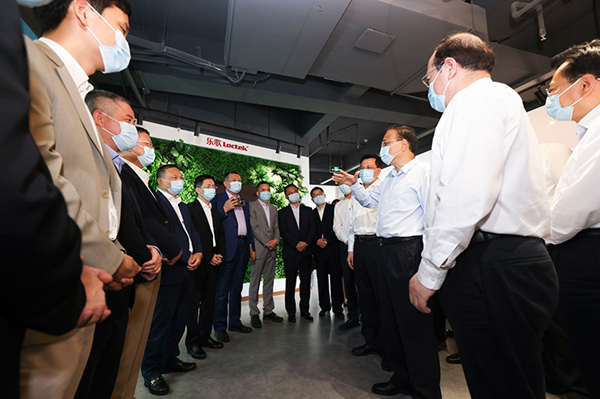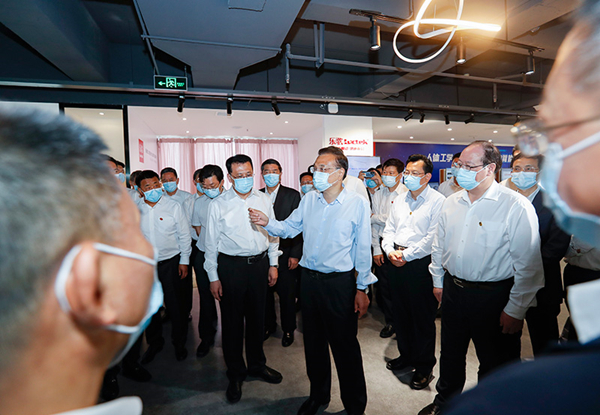
Premier Li Keqiang inquired about the unfavorable impact of rising bulk commodity prices on downstream firms and discussed countermeasures with a dozen manufacturing entrepreneurs on May 24 during his inspection in Ningbo city of East China’s Zhejiang province.
A household appliance entrepreneur admitted to pressure on production and operations caused by rising raw material prices, to which another entrepreneur offered a solution ― further intellectualizing production to reduce costs.
And a copper valve producer eyed more preferential policies to help save on costs, like raising the ratio of extra tax deductions on manufacturing firms’ R&D costs.

This year certain bulk commodities have experienced continuing rises in prices due to multiple factors, mainly international transmissions, the Premier said.
Referring to his trip to Beilun Port in Ningbo city, Premier Li said he learned about the going rate of bulk commodity prices. As for the situation reports from downstream entrepreneurs, he fully affirmed their efforts to alleviate the corresponding adverse effects and related suggestions.
The government will strive to ensure the supply of bulk commodities, stabilize their prices, and reasonably navigate market anticipations. Proper reserves, regulation and control, and crackdowns on hoarding and speculation are all needed to support enterprises and prevent rises in consumer goods prices to protect people from the impact.
Related policies for tax and fee cuts call for sound implementation, the Premier said, urging continuing to implement direct-benefit monetary policy tools for micro and small enterprises.
With the policies in full play, the government will make every endeavor to help pull through downstream enterprises, especially micro, small and medium-sized enterprises.